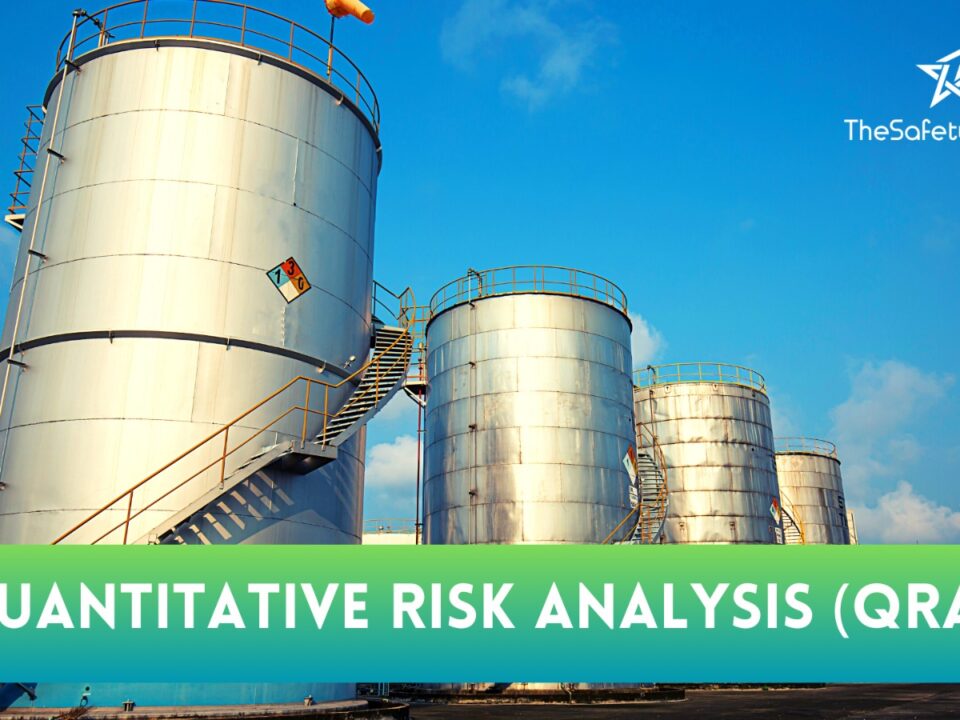Ethical Consideration in Quantitative Risk Analysis Ensuring Transparency & Accountability

First aid training for specific environments: workplace, home, and outdoor settings – The Safety Master
May 8, 2024
Integrating HAZOP into Process Design and Modification Processes
May 13, 2024Introduction
In the realm of risk management, where decisions shape the safety and well-being of individuals and communities, ethical considerations stand as pillars of trust and integrity. Quantitative risk analysis serves as a powerful tool in this domain, offering insights into potential hazards and guiding decision-makers towards informed choices. However, the ethical dimension of quantitative risk analysis cannot be overlooked. This article delves into the ethical considerations essential for ensuring transparency and accountability in quantitative risk analysis, with a focus on the role of the Safety Master.
Understanding Quantitative Risk Analysis
What is Quantitative Risk Analysis?
Quantitative risk analysis involves the systematic assessment of risks using mathematical and statistical methods. It quantifies the likelihood and impact of various hazards, allowing organizations to prioritize mitigation efforts effectively.
Importance of Quantitative Risk Analysis
Quantitative risk analysis provides invaluable insights for decision-making. By assigning numerical values to risks, organizations can allocate resources efficiently, mitigate potential losses, and enhance overall safety.
Ethical Considerations in Quantitative Risk Analysis
Transparency in Data Collection
Transparency in data collection is paramount for the integrity of risk analysis. It entails openly disclosing the sources of data, methodologies used, and any assumptions made during the assessment process. This transparency allows stakeholders to scrutinize the analysis, fostering trust and credibility.
Accountability in Risk Assessment
Accountability ensures that decision-makers take responsibility for their actions and the outcomes of risk assessments. It involves clearly defining roles and responsibilities, adhering to ethical standards, and being accountable to stakeholders. Through accountability, organizations uphold ethical principles and strive for continuous improvement in risk management practices.
Fairness in Decision Making
Fairness in decision-making is essential for equitable outcomes in risk analysis. It requires considering the interests of all stakeholders, including marginalized communities and future generations. By incorporating diverse perspectives and addressing potential biases, organizations can make more ethical and robust decisions.
The Role of Safety Master
Introduction to Safety Master
The Safety Master is an innovative software solution designed to facilitate quantitative risk analysis while upholding ethical principles. It integrates advanced risk assessment algorithms with ethical frameworks, enabling organizations to conduct transparent and accountable risk analyses.
Ethical Framework of Safety Master
The Safety Master operates on a robust ethical framework that prioritizes transparency, accountability, and fairness. It ensures that all aspects of the risk analysis process, from data collection to decision-making, adhere to ethical standards and best practices.
Ensuring Transparency
Through features such as real-time data visualization and audit trails, the Safety Master promotes transparency in risk analysis. It allows stakeholders to track the entire assessment process, from data input to risk mitigation strategies, fostering trust and credibility.
Enhancing Accountability
The Safety Master promotes accountability by clearly defining roles and responsibilities within the risk analysis team. It assigns permissions based on user roles, ensuring that decision-makers are held accountable for their actions and decisions.
Conclusion
Ethical considerations are integral to quantitative risk analysis, ensuring transparency and accountability in decision-making processes. By embracing ethical principles and leveraging innovative solutions like the Safety Master, organizations can navigate risks responsibly and safeguard the well-being of stakeholders.




